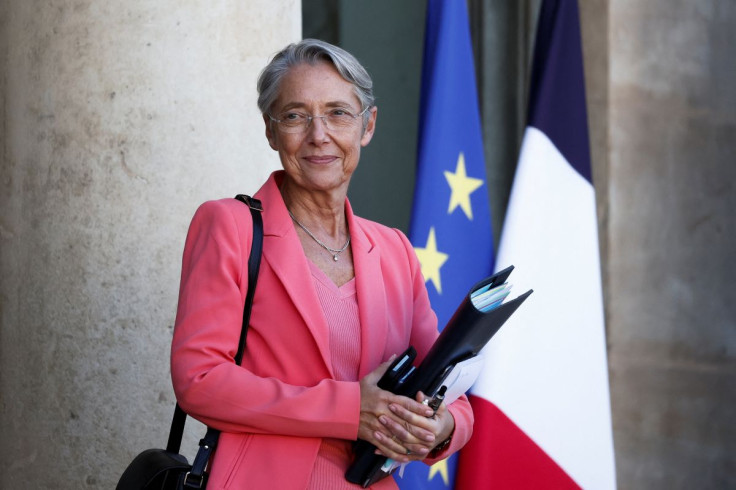Opposition, Government Must Work Together To Avoid Instability, French PM Says

France's government and opposition must "talk to each other better" to avoid political paralysis and confront a cost of living crisis, Prime Minister Elisabeth Borne said on Wednesday, addressing the new parliament in which she lacks an overall majority.
"Disorder and instability are not options," Borne said in a speech to lawmakers at times drowned by boos from the opposition.
With energy a priority amid the war in Ukraine and soaring prices, Borne also announced that the government aimed to fully nationalise debt-laden utility EDF.
President Emmanuel Macron's centrist alliance lost its absolute majority in legislative elections in June despite his winning a second term in April.
Without pacts with other parties, Borne now faces the prospect of bill-by-bill negotiations in parliament. She has also opted against a potentially risky confidence vote after her policy speech.
In his first five-year presidential mandate, Macron had an absolute majority in parliament, which largely rubber stamped his plans.
In a speech setting out her policies, Borne, a 61-year old career civil servant and politician, said she would be open to amending bills with proposals from the opposition - including on Macron's flagship pension reform plans.
"The French are asking us to talk to each other more, to talk to each other better, and to build together," she said.
"For too long, our political life has been made up of opposing blocs."
Taking steps to improve the cost of living will be the main priority, she said, confirming plans to boost pensions, cap rent increases and prolong limits on gas and electricity prices, which are set to be included in a bill later this week.
The nationalisation of EDF would allow it to carry out "ambitious and essential projects" for France's energy future, she said.
NO-CONFIDENCE VOTE
Government officials said they believed they could have narrowly won a confidence vote but that would have meant counting on the far right abstaining, which would have been politically unpalatable.
"We could imagine the headlines: the government won thanks to the National Rally. We don't want to fall into this trap," a government source said.
Left-wing parties said the government's reluctance to hold a confidence vote - a first in 30 years - was undemocratic. They tabled a no-confidence motion, which will be voted on in the coming days.
This is much less risky for Borne. A no-confidence motion requires an absolute majority to precipitate a government's fall. Barring any major surprise, this will not happen after the conservative Les Republicains (LR) and the far-right Rassemblement National said they would not back it.
Nonetheless, the no-confidence motion allows the left-wing Nupes alliance to cast itself as the government's leading opponent. The conservatives and the far right both say they will play the role of a constructive, responsible opposition.
"It will clarify the political landscape and show who is in the majority and who is in the opposition," hard-left lawmaker Manuel Bompard told France Inter radio.
Those who do not back the no-confidence vote will be responsible for keeping Borne in power, he said.
LR lawmaker Aurelien Pradie responded on Franceinfo TV saying: "We're not a fruitless, stupid and nasty opposition, unlike others."
© Copyright Thomson Reuters 2024. All rights reserved.





















